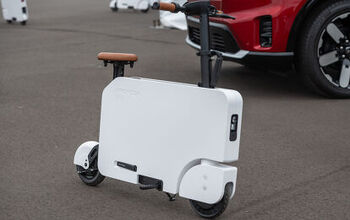Canada: Privacy Commissioner Concerned Over License Plate Spying
The Office of the Privacy Commissioner of Canada expressed concern last week over the growing police use of technology to spy on motorists. In a letter to the Nanaimo Daily News, Assistant Privacy Commissioner Chantal Bernier emphasized that the Royal Canadian Mounted Police had not received the commissioner’s approval for the agency’s use of license plate recognition devices. Known as ANPR in the UK and ALPR in North America, these cameras use a combination of electronic databases, cameras and optical character recognition software to identify each passing vehicle. Over time, the devices create a searchable log containing the exact time and date that each automobile passed a given location.
“Traditionally, traffic surveillance technologies have been used to capture specific infractions such as speeding or running a red light,” Bernier wrote. “With ALPR, the technology captures personal information related to all vehicles within the camera’s field of view — even parked cars — in the absence of any particular suspicion of an individual or vehicle… In other words, the program involves a generalized and ubiquitous form of surveillance that is very different from previous police techniques to detect traffic violations. Generalized surveillance of the Canadian population clearly raises some red flags for privacy rights.”
The technology is already so widespread in England that officials have announced plans to ensure every road in the country is covered by ANPR cameras. The records generated by this network will be stored for at least five years in a central government server in London, allowing police to keep tabs in real time on the movements of criminals and political opponents. In the US, the same networked spy technology is being offered by the two leading photo enforcement vendors, Australia’s Redflex Traffic Systems and American Traffic Solutions.
The privacy ‘red flags’ are not theoretical. Last year, police in Hertfordshire, England dropped a USB drive containing unencrypted logs of motorist movements in the gutter. In 2005, traffic camera vendor Affiliated Computer Services (ACS) abandoned a box of photo radar tickets on a park bench in Edmonton, Canada. In the same year, Edmonton Sun columnist Kerry Diotte personally experienced how such systems could be used against political opponents. According to court testimony, police angered by Diotte’s criticism of photo radar accessed an electronic database in a failed effort to frame Diotte for drunk driving.
Bernier expressed broader concerns over the use of such technology in a March speech about the use of so-called enhanced driver’s licenses.
“Security is a tangible good,” Bernier said. “We can count fences and locks and surveillance cameras, and we can increase their number if we feel threatened or exposed. Privacy, by contrast, cannot be weighed or measured; it can barely be defined, except in other equally ephemeral terms, such as identity, autonomy, liberty and freedom from state control. And so it is always vulnerable. Like any delicate and precious thing, privacy demands our protection.”
[courtesy thenewspaper.com]
More by The Newspaper
Latest Car Reviews
Read moreLatest Product Reviews
Read moreRecent Comments
- MaintenanceCosts Poorly packaged, oddly proportioned small CUV with an unrefined hybrid powertrain and a luxury-market price? Who wouldn't want it?
- MaintenanceCosts Who knows whether it rides or handles acceptably or whether it chews up a set of tires in 5000 miles, but we definitely know it has a "mature stance."Sounds like JUST the kind of previous owner you'd want…
- 28-Cars-Later Nissan will be very fortunate to not be in the Japanese equivalent of Chapter 11 reorganization over the next 36 months, "getting rolling" is a luxury (also, I see what you did there).
- MaintenanceCosts RAM! RAM! RAM! ...... the child in the crosswalk that you can't see over the hood of this factory-lifted beast.
- 3-On-The-Tree Yes all the Older Land Cruiser’s and samurai’s have gone up here as well. I’ve taken both vehicle ps on some pretty rough roads exploring old mine shafts etc. I bought mine right before I deployed back in 08 and got it for $4000 and also bought another that is non running for parts, got a complete engine, drive train. The mice love it unfortunately.


































Comments
Join the conversation
@Robert Schwartz: "If one would give me six lines written by the hand of the most honest man, I would find something in them to have him hanged." - Cardinal Richelieu
Quote: Robert Schwartz : October 20th, 2009 at 2:12 pm One more time. Things that happen in private are private. Things that happen in the middle of the public way, do NOT happen in private, they are public. The license plates are required to allow convenient identification of the vehicle and its responsible owner. The plate is purchased from the government. It is public and intended to be that way. The record of car ownership created by the purchase of the plate belongs to the government and is by definition a public record. Using cameras and other equipment to monitor vehicles in the public streets may be incipient totalitarianism, but it cannot be and infringement of PRIVACY rights because it all happens in PUBLIC. You would NEVER get my vote!